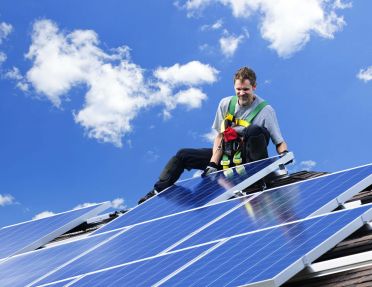When you’re ready to invest in a residential solar energy system, you’ve likely considered a few financing options. In most cases, a cash payment for the system will cover the entire cost. In addition, you’ll receive all applicable rebates and incentives. So what are your options for financing? Here are a few things to consider. And while you may not have the money to purchase solar panels right now, you’ll be able to enjoy the benefits of free electricity for years to come.

One of the most popular options is a home equity loan. While this type of loan is a risky option because you could lose your home if you default on the loan, it can also provide you with better terms.
Many banks and solar installers offer loans to homeowners. These loans are similar to home improvement loans but do not require a credit check. You can also take advantage of home equity loans. Depending on your financial situation, you can choose a five, ten, or fifteen-year repayment schedule.
While you can apply for a home equity line of credit, a home improvement solar loan, or refinance can help you finance your home energy upgrade. The payback period of a solar panel system depends on the utility electric rate. Depending on your situation, a home equity line of credit may be the best option.
There are a few different ways to finance residential solar energy. In general, you can find a great deal online by using an online tool. If you’re in a financial bind, you’ll need to consider whether a PPA or a lease will be better for your budget. While both options have their pros and cons, it is worth comparing solar quotes to make sure you get the best deal.
Leasing a solar panel is another option. While a home equity line of credit will cover the upfront cost, solar leases will allow you to pay for your solar energy system over time. If you’re unable to get a loan outright, you can still take advantage of tax incentives. Some states even allow you to sell your solar power. You may also want to visit the website of your state’s utility company to learn about their policies on solar energy.
A PACE lease is similar to a solar loan but isn’t eligible for a solar tax credit. It requires no upfront cash but requires a fixed monthly payment for the full term. And it has a few additional advantages over a solar loan. If you are not eligible for a government tax credit, you can choose a lease that allows you to avoid paying the upfront costs. And if you don’t want to worry about the maintenance and upkeep of the solar panel system, leasing is the way to go.
The main benefit of purchasing a solar energy system is the fact that it increases the value of your home. The money that you save up from your monthly utility bills is the best investment. A solar energy system will significantly increase the value of your home.
